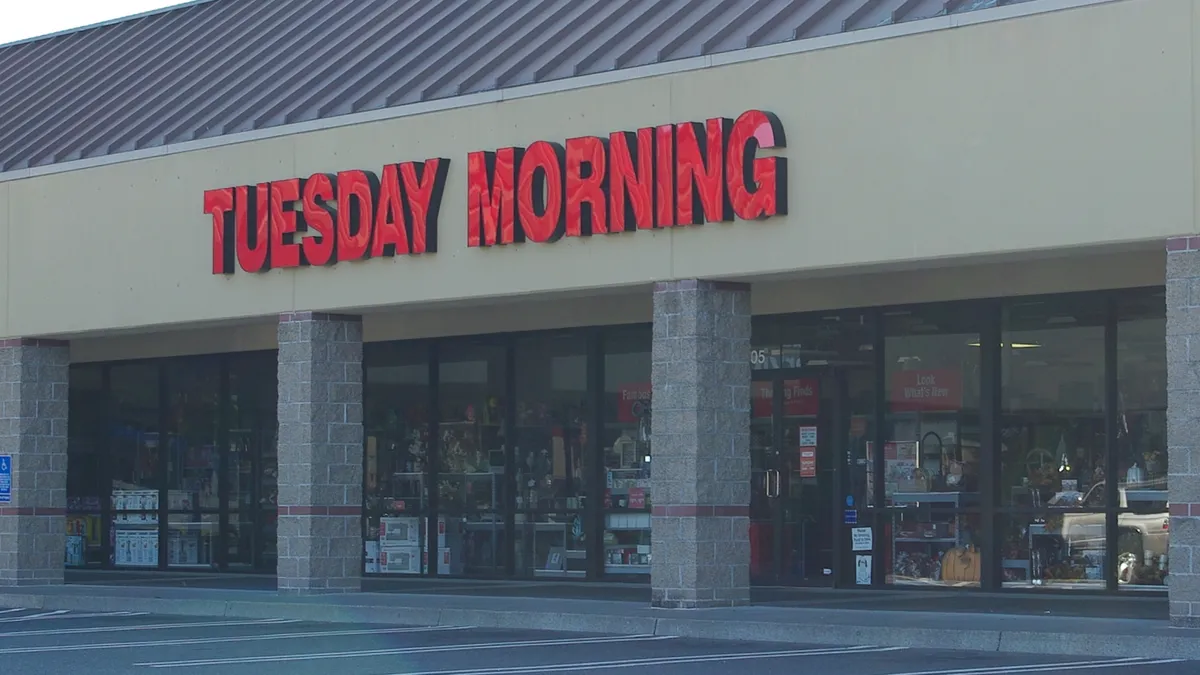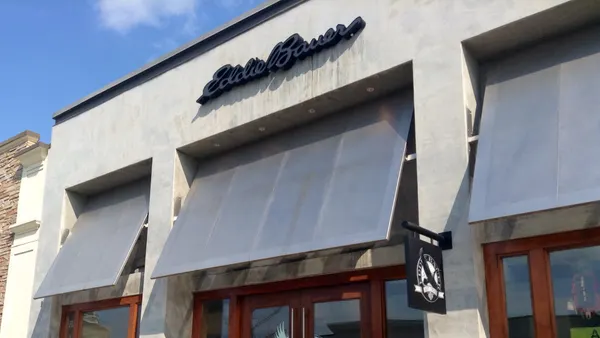Dive Brief:
- Discount retailer Tuesday Morning filed for Chapter 11 Tuesday. The decision will “enable the company to reduce its outstanding liabilities, obtain significant and necessary capital, and ultimately transform into a nimbler retailer that serves heritage markets in a profitable manner,” the company said in a statement.
-
As part of the reorganization, Tuesday Morning plans to shrink its store footprint and focus on its most highly trafficked stores. The company said closing unprofitable and underperforming stores will enable Tuesday Morning to exit bankruptcy “with a profitable, cash-generating store fleet.” Tuesday Morning had 487 stores in 40 states in late November. In its most recent 10-K filing, Tuesday Morning said it employed about 1,600 full-time and 4,700 part-time workers.
- In its bankruptcy filing with the U.S. Bankruptcy Court for the Northern District of Texas, Fort Worth Division, Tuesday Morning said it had liabilities and assets of between $100 million to $500 million, and that it has secured a $51.5 million debtor-in-possession commitment from Invictus Global Management that will support the company’s operation while the case is pending.
Dive Insight:
Tuesday Morning in September received $35 million from an investor group led by Retail Ecommerce Ventures, which owns Pier 1 and other retailers. But that infusion of funding apparently wasn’t enough.
“After considering how best to address Tuesday Morning’s exceedingly burdensome debt, we have determined that the best path to reorganizing and transforming the Company begins with a Chapter 11 filing,” CEO Andrew Berger said in a statement.
In November, the company ended the first quarter of fiscal 2023 with $6.9 million in cash and cash equivalents, $31.4 million outstanding under its line of credit, and availability on its line of credit of $25.3 million. The prior year, Tuesday Morning reported $4.6 million in cash and cash equivalents, $22.4 million of outstanding debt under its line of credit, and availability on the line of credit of $39.7 million.
Established in Dallas in 1974, Tuesday Morning describes itself as one of the original off-price retailers. The company’s main merchandise categories are upscale home furnishings, housewares, pet supplies, bath and body products, toys and seasonal decor. In contrast with some retailers in the discount segment, Tuesday Morning says it doesn’t sell seconds or irregular items.
Tuesday Morning said it plans to achieve significant cost reductions and improve efficiency across its distribution channels by focusing on a narrower set of high-performing stores. The company said it plans to pivot to a third-party logistics model and transition to a more cost-effective inventory acquisition strategy for its remaining stores.
Before its previous bankruptcy in 2020, Tuesday Morning had 687 stores. That filing was caused at least in part by the COVID-19 pandemic, which hurt the company’s operations, store traffic, employee availability and financial position. In March 2020, the company closed all of its nearly 700 stores. They all remained closed for about three months. Tuesday Morning shuttered an Arizona distribution center as part of the last bankruptcy, along with nearly 200 stores.
More recently, the company replaced its CEO, chief operating officer and chief merchant. In November, CEO Fred Hand was replaced by Berger, while Chief Information Officer Bill Baumann took on interim roles as COO and chief merchandising officer.
A month after that, the company voluntarily delisted itself from the Nasdaq and said it plans to go private. Doing so would end its reporting obligations to the Securities and Exchange Commission. That move also would allow more fundraising flexibility and potentially lower operating expenses while simplifying the company’s corporate governance structure.
If the requirements are met by July 3, the company said it could go private by September. Amit Patel, a partner with Invictus, said in a statement that Berger and Tuesday Morning’s leadership team “have our full support as they guide the company through this process and lay a foundation for a brighter future.”
Berger said regular business operations will continue while the bankruptcy is pending.
















